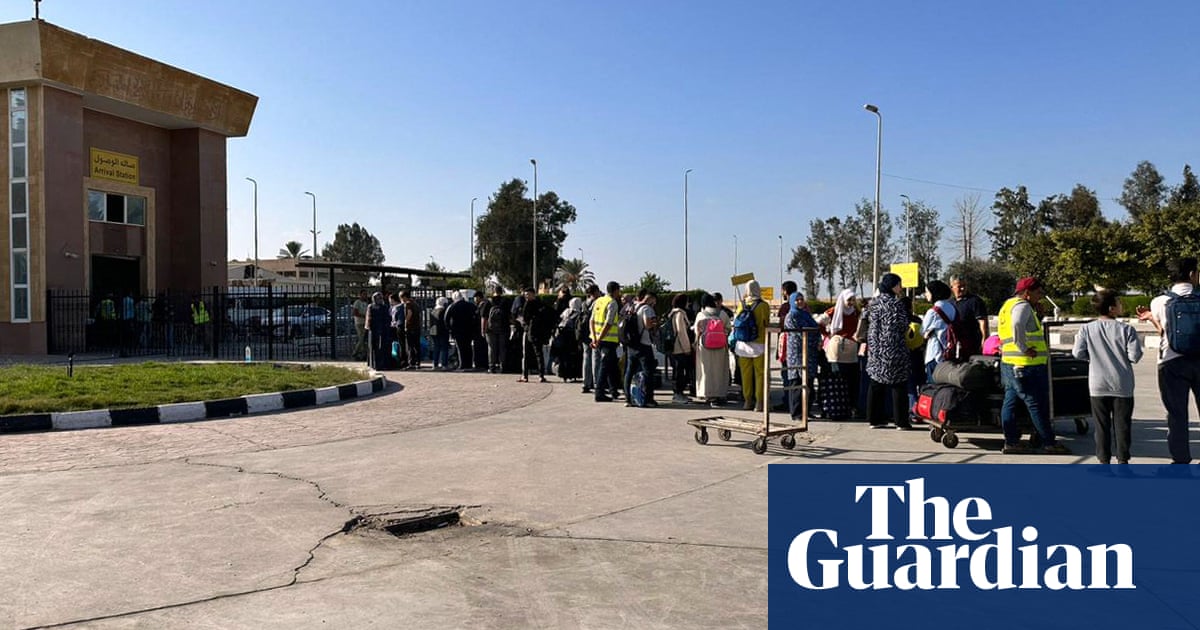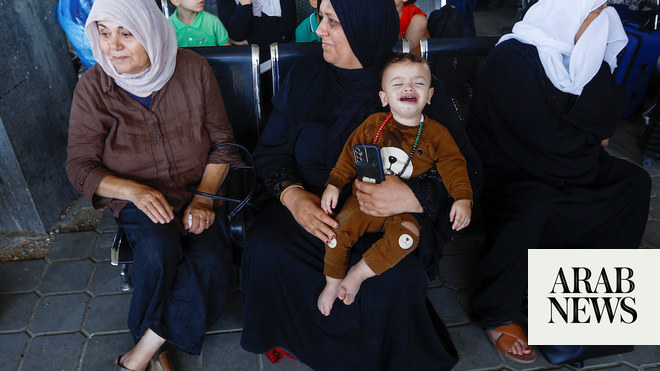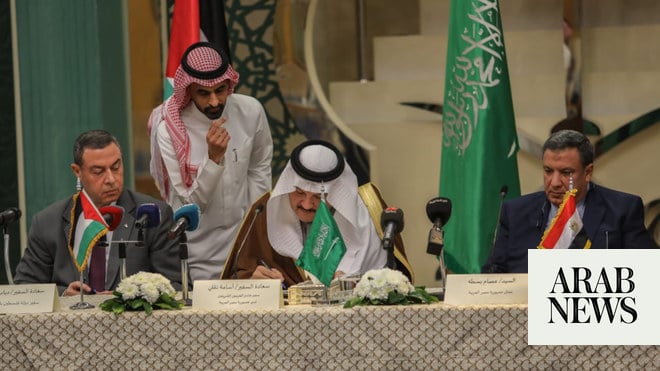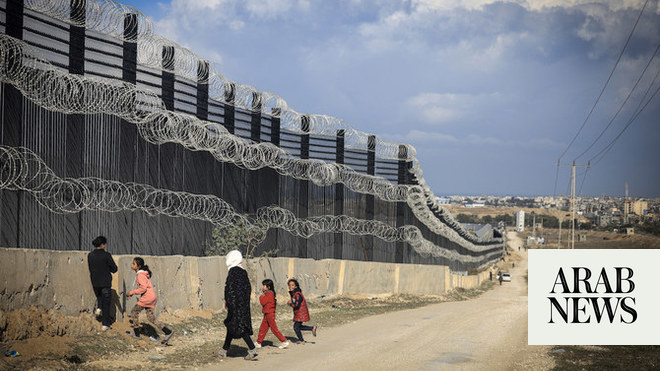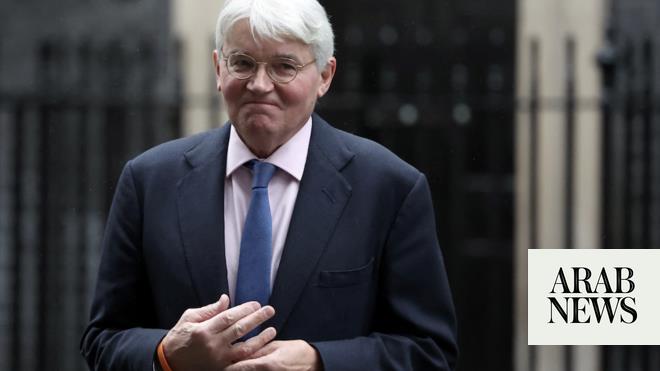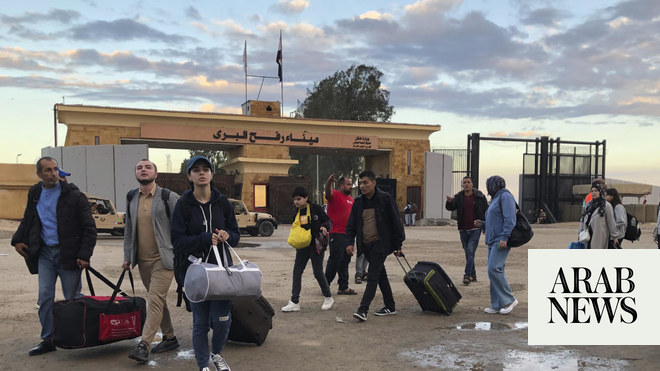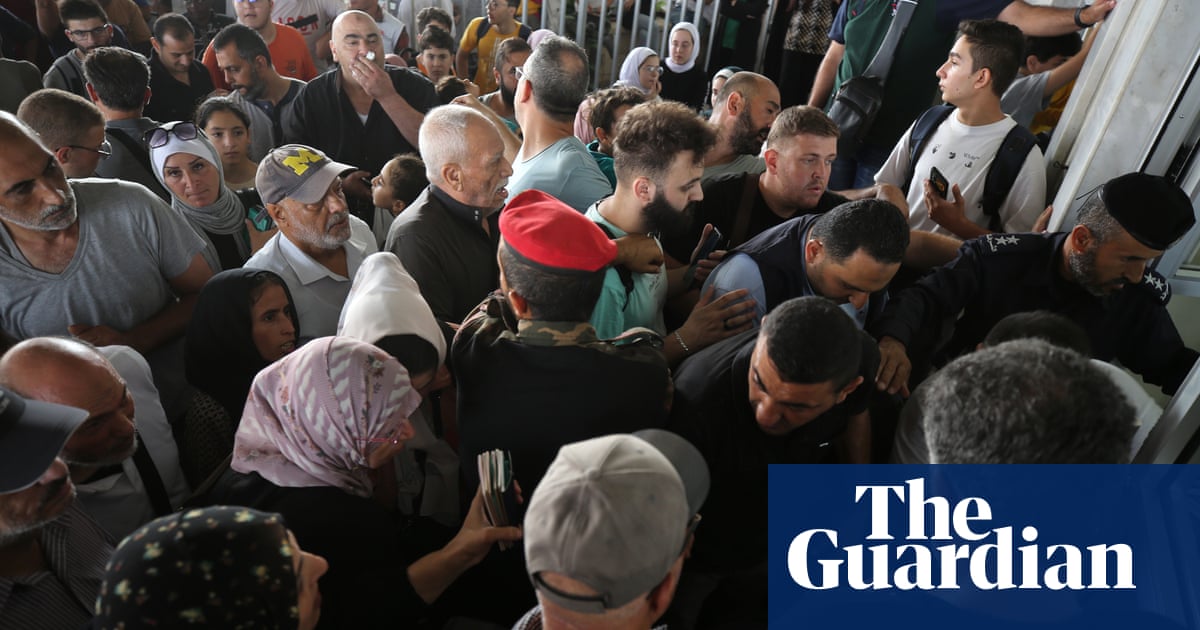
The families of British citizens trapped in Gaza have said it is devastating that their loved ones have been turned away from the Rafah border crossing with Egypt, as the Foreign Office said the first UK nationals had made it through.
Hundreds of foreign passport holders and injured Palestinians requiring hospital treatment crossed into Egypt on Wednesday after more than three weeks of conflict in which thousands of people have been killed.
The UK Foreign Office said the border was being opened for “controlled and time-limited periods to allow specific groups of foreign nationals and the seriously wounded to leave”. They said on Wednesday evening that the first British nationals had been allowed across.
“We have agreed a list of British nationals that want to leave Gaza with Egyptian and Israeli authorities,” said a spokesperson. “We will be informed in advance when those on the list can use the crossing to ensure we can provide assistance.”
But the relatives of some of the 200 British or dual nationals trapped in the Palestinian territory have described scenes of chaos and desperation at the border. It is understood that initially only two of the 500 people on a list of those eligible to leave were British nationals.
The list included Abdel Hammad, a transplant surgeon from Liverpool who was working for a charity in Gaza. But his son, Salim Hammad, told the Guardian on Wednesday afternoon that the border was closed before his father and the other Briton, who works for a non-governmental organisation, were able to get through.
The 34-year-old doctor, who lives in Oxford, said: “It’s just frustrating. Another day of getting your hopes up then having to spend it there again, but hopefully tomorrow will be another day.”
The Labour MP Jess Phillips posted about the confusion on X, formerly known as Twitter, writing: “My constituents telling me that they have not got out today and don’t think any British nationals have. Some clarity on this would be helpful.”
Lalah Ali Faten said she was living in a “waking nightmare” after her daughter, Zaynab Wandawi, 29, an English teacher from Manchester, was turned away on Wednesday morning. She said Wandawi had made the perilous journey to the crossing after receiving a “vague” message from the Foreign Office on Tuesday evening to say it “may open”.
“They saw other foreign nationals leaving, but when they approached, they were informed that their names were not on the list, and they were turned away,” the 52-year-old said. “It is devastating to hear that the borders are opening, foreign nationals are leaving, but my family, my daughter, is not allowed to leave because she’s a British national.”
Faten, an educational consultant, said Wandawi had travelled to Gaza with her husband and eight of her in-laws for a wedding two days before the conflict broke out. She said her daughter was “very brave” but that she feels abandoned by the British government as she struggles with limited food supplies and a lack of drinking water, and has to wash in seawater.
Faten said: “It feels like a waking nightmare. Everything else has stopped in our lives. We’re just working on highlighting the case as I don’t want them to be forgotten. I feel that the government is not doing enough: it’s just lip service at the moment. If other governments have managed to get their citizens out, why not ours? Is there more that they could do? I’m sure there is.”
Mohammed Ghalayini, a civil servant from Manchester, said he had driven to the Rafah crossing at 9.30am on a “quest to get information” after a second communications blackout on Wednesday morning. Once there, a fellow evacuee passed on the list of those cleared to cross and he saw that his name was not listed, so he returned to Khan Younis, where he has been sheltering with three other families.
“I think, based on experience, if your name is not on a list, it’s futile to try. It was quite desperate there. People are afraid and they want to leave,” the 44-year-old said.
A British woman and her baby were also turned away from the crossing for the fourth time on Wednesday morning. The woman’s friend, Keren Weitzberg, who did not want to name the woman because of safety concerns, said: “Each journey has put her and her baby at risk. Her husband is deeply worried about his wife and child. Nowhere in Gaza is safe. Every time she travels to the Rafah crossing, he worries she may be caught in an Israeli bombardment. He often cannot reach her due to internet blackouts.”
Faras Abuwada, whose wife and five children are among the British nationals waiting to be evacuated from Gaza, said he was returning to Egypt for the second time since the conflict began on 7 October to try to help his family.
“I’m fed up [with] this government,” said Abuwada from Heathrow airport on Wednesday. “I feel isolated, hopeless, terrified — I’m worried about my children.”
His family are in Jabalia, northern Gaza, where at least six airstrikes hit residential areas of a refugee camp on Tuesday, killing more than 50 people and injuring about 150, Hamas officials said. He said he was worried about how his wife would travel south with their children, two of whom are autistic, when their opportunity to evacuate comes.
“If I can get inside Gaza, I will,” he said. “I know 100% she needs physical help with the children, so I have to be there. I can’t trust [the] British embassy to do anything.”
The Foreign Office said: “We continue to work with Egyptian and Israeli authorities to ensure all British nationals can leave, and call for sustained humanitarian assistance into Gaza.”





